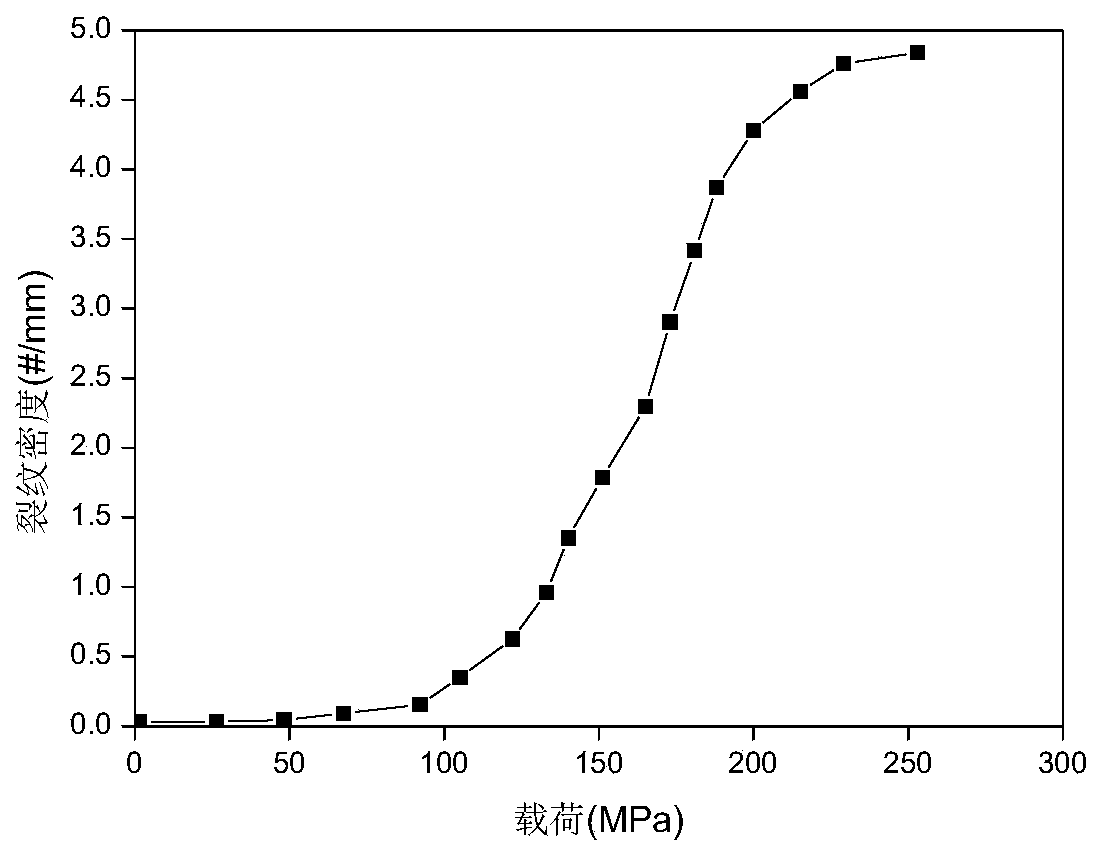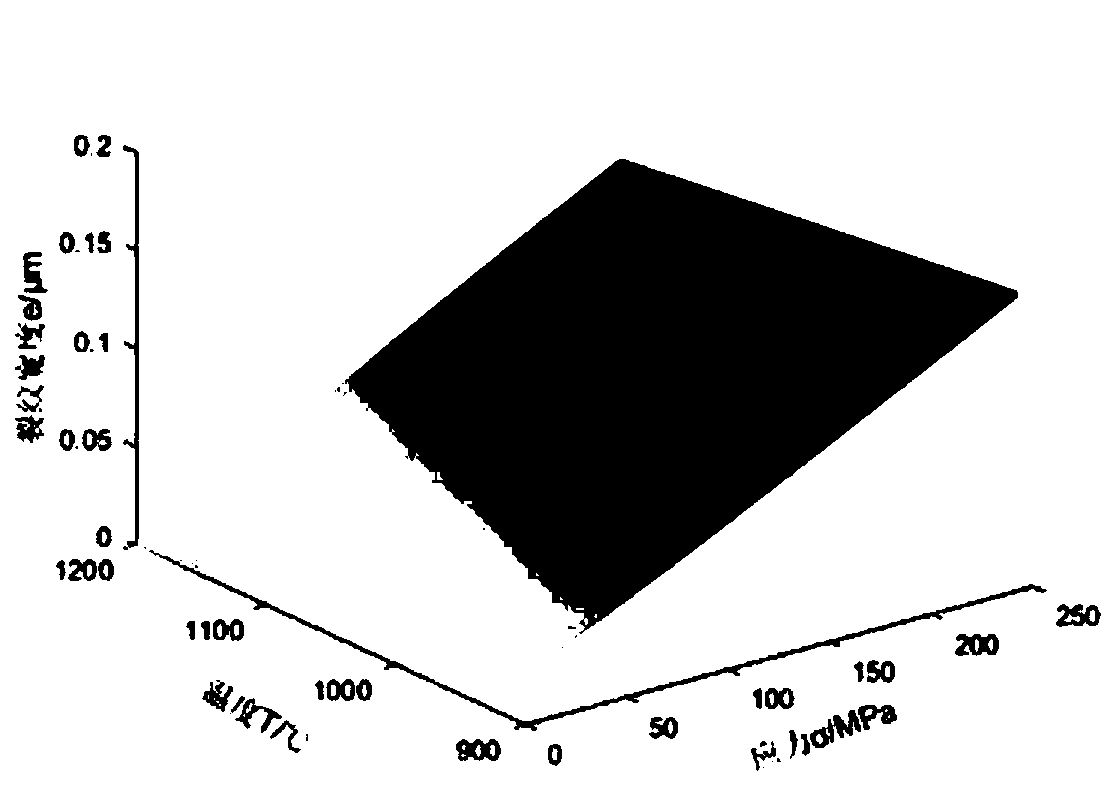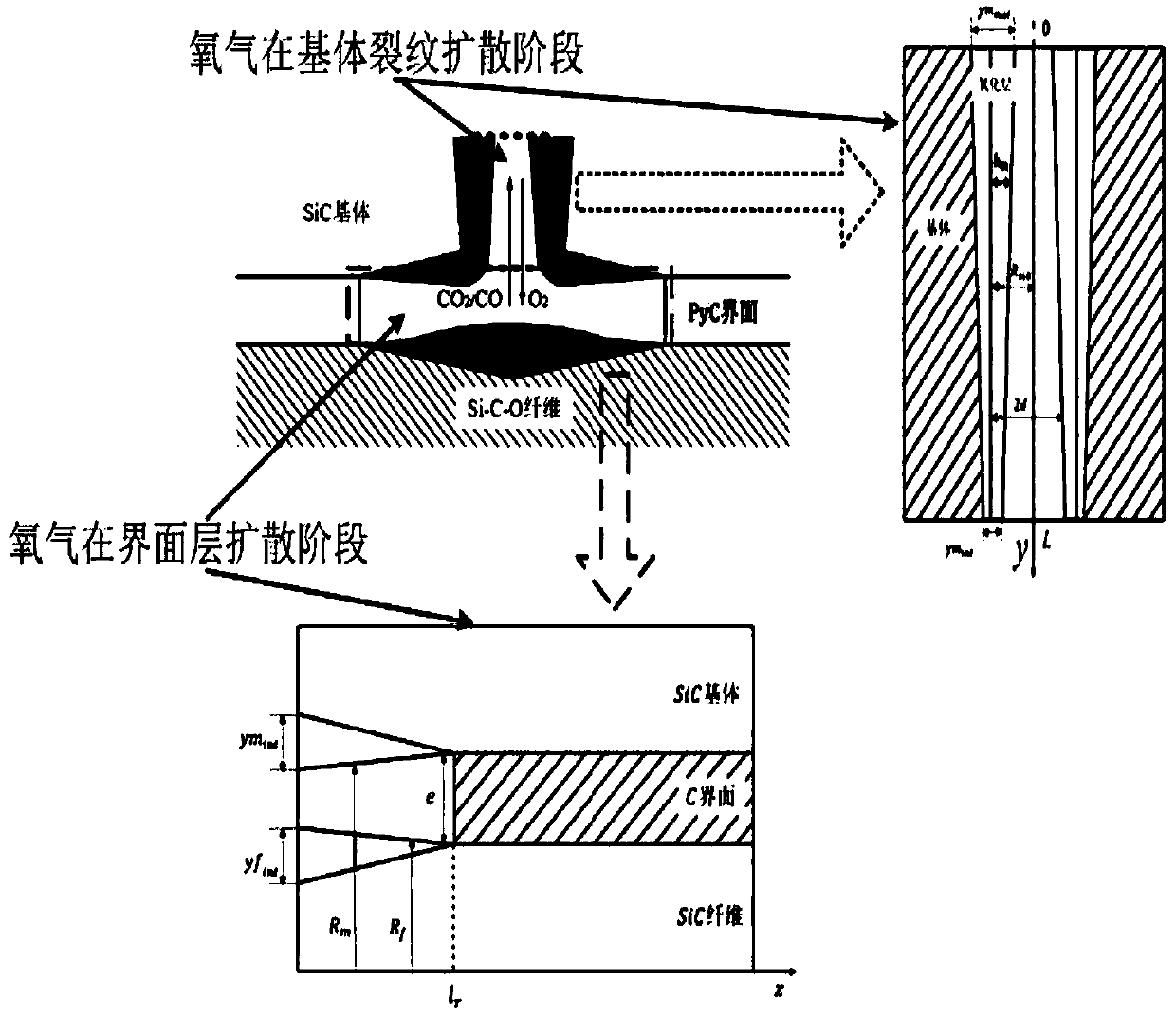Method for predicting residual tensile strength of ceramic-based composite material in stress oxidation environment
A composite material and tensile strength technology, used in design optimization/simulation, special data processing applications, instruments, etc., can solve problems such as the inability to accurately predict the residual tensile strength of unidirectional SiC/SiC composites
- Summary
- Abstract
- Description
- Claims
- Application Information
AI Technical Summary
Problems solved by technology
Method used
Image
Examples
Embodiment Construction
[0146] Below in conjunction with embodiment the present invention will be further described.
[0147] Taking the unidirectional SiC / C / SiC composite material in a pure oxygen environment with an ambient temperature of T∈(900~1200°C) and an ambient pressure of P=100KPa as an example, calculate its performance at different oxidation times, stress levels, and temperatures. Residual tensile strength of unidirectional SiC / C / SiC composites, where SiCSiC fibers are NicalonSiC fibers from Nippon Carbon Corporation.
[0148] (1) Determine the change law of the saturation crack spacing of the SiC matrix of the unidirectional SiC / SiC composite material and the average spacing of the SiC matrix cracks with stress;
[0149] (2) Determine the change law of crack width of SiC matrix with stress and temperature;
[0150](3) Establish the unidirectional SiC / SiC composite material stress oxidation kinetic equation and boundary conditions, and use the classical fourth-order Runge-Kutta method to...
PUM
 Login to View More
Login to View More Abstract
Description
Claims
Application Information
 Login to View More
Login to View More - R&D
- Intellectual Property
- Life Sciences
- Materials
- Tech Scout
- Unparalleled Data Quality
- Higher Quality Content
- 60% Fewer Hallucinations
Browse by: Latest US Patents, China's latest patents, Technical Efficacy Thesaurus, Application Domain, Technology Topic, Popular Technical Reports.
© 2025 PatSnap. All rights reserved.Legal|Privacy policy|Modern Slavery Act Transparency Statement|Sitemap|About US| Contact US: help@patsnap.com



